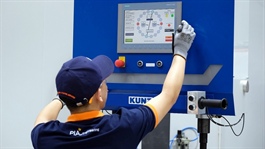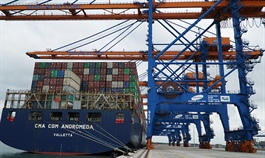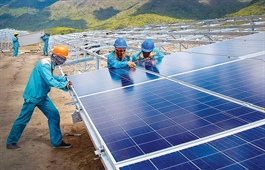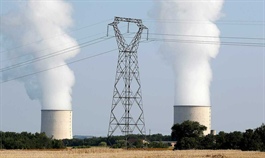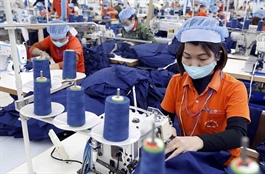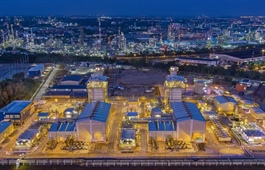HCM City seeks to stabilise supply, prices of essential goods by tying up with provinces
HCM City seeks to stabilise supply, prices of essential goods by tying up with provinces
Director of the HCM City Department of Industry and Trade, Bui Ta Hoang Vu, has said the city would work closely with south-western cities and provinces to set up production chains to keep the supply and prices of essential products steady. 
Co-operation between HCM City and the southern provinces has over the last 10 years fostered consumption of the latter’s products, enabling businesses to expand production and trading and contributing to socio-economic development.
In 2011 the department signed an agreement with the industry and trade departments of seven eastern provinces and 13 provinces and cities in the Southwest.
They have since been regularly exchanging information on demand and supply of goods, market prices and the availability of essential food and foodstuffs.
According to the Ben Tre People’s Committee, the programme has helped the province’s businesses find regular outlets for their products, making them feel secure about investing in expansion and quality.
Vu said enhancing demand-supply links is an indispensable and important aspect of trade, and the Trade Cooperation Programme between the city and other provinces and cities in the south-eastern and south-western regions has had a positive effect by creating close co-operation between them.
Over the last five years 3,743 contracts and MoUs have been signed between businesses in the city and in the southern region worth an estimated VND5 trillion (US$215.6 million) a year, he added.
The city’s three wholesale markets receive an average of 8,000 tonnes of agricultural products and foodstuffs every day from other localities for local consumption and onward transport to many other provinces and cities, helping balance supply and demand in the southern region.
Following the resounding success of the programme, the city Department of Industry and Trade plans to continue it for another five years.
In the next phase, the programme is expected to not only expand domestic consumption, but also promote export of industrial consumer products and household appliances, and build brands for agricultural products and specialities of each locality.
Government agencies will work to improve the efficiency of the programme to enable more businesses to meet, exchange information and explore co-operation opportunities.
Provinces and cities have created favourable conditions for HCM City businesses to set up shop there and collaborate with their farmers for animal breeding and cultivation, according to Vu.
Twenty eight firms participating in the city’s price stabilisation programme have invested more than VND18 trillion ($778.1 million) in 47 production facilities and 63 farms in various localities.
Under the programme this year the city seeks to help participating businesses expand their sales networks and encourage them to tie up with modern distribution channels like supermarkets and convenience stores, develop sales points at traditional markets, industrial parks, export processing zones, and outlying districts, and organise mobile sales trips to enable more consumers to access their goods.
It also encourages firms to invest more in improving packaging and design and to diversify their products.







